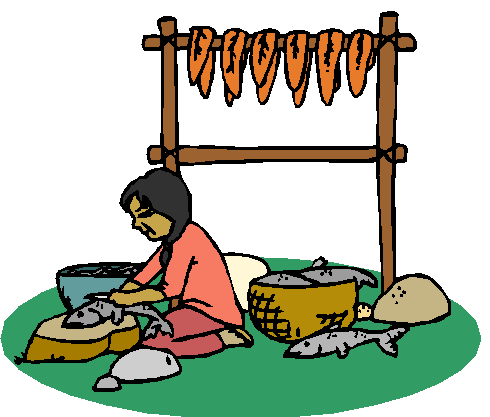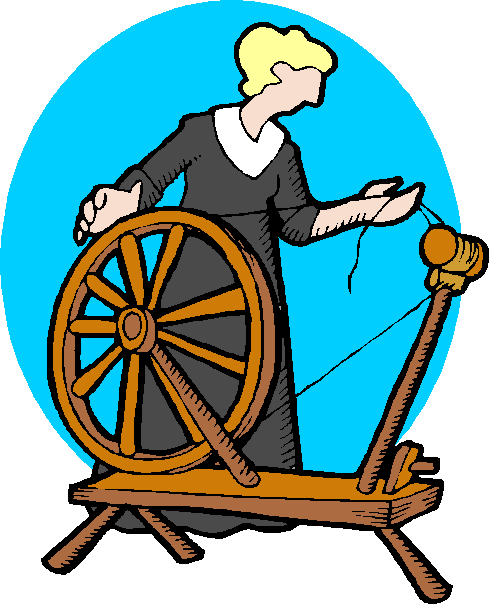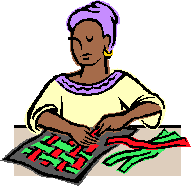


History 3070 MacKay 2005
Weeks One-Four
Early America 1600s - 1790s



Week One: Introduction -- the resources in American Women's history
Readings: find an article in a scholarly journal (Stewart Library subscribes to Journal of Women's History, Signs, Feminist Studies. You might also try JSTOR, although articles are available only to 1997.)
Response topic #1: What is the current scholarship being published in women's history? Comment on the article in three parts: 1) a summary of the author's argument, 2) a brief outline of the high points of the article, and 3) and evaluation of the author's argument--how does he/she make the case (sources, etc.): due January 19
We will also discuss: "Children of the Gods," from The Less Noble Sex: Scientific, Religious, and Philosophical Conceptions of Woman's Nature (Race, Gender, and Science), Nancy Tuana, 1993. Report your reactions orally: January 19
Second to None, Vol. I: 11-16, 23-33, 35-44. Report your reactions orally: January 19, 21
Film: Sewing Woman
Weeks Two-Three: Colonial American Women
We will consider three groups of women: Native American women, English colonists, African slaves.
We will consider the female economy as part of subsistence economies.
Readings: Second to None, Vol. I: 55-65, 73-75, 105, 110-112, 121, 131-34, 144-46
From the Henry Ford Museum is an interactive site describing a family in colonial Connecticut.
From Digital History: Childbirth in early America
Handouts:
"Native American Women and Agriculture: A Senecca Case Study," Jensen, 1977.
""A Friendly Neighbor": Social Dimensions of Daily Work in Northern Colonial New England," Ulrich, 1980.
Available through JSTOR:
Some Aspects of Female Resistance to Chattel Slavery in Low Country Georgia, 1763-1815," Betty Wood, The Historical Journal, 1987."The Planter's Wife: The Experience of White Women in Seventeenth-Century Maryland," Lois Green Carr; Lorena S. Walsh, The William and Mary Quarterly, 1977.
Response Paper Topic: #2: A European settlement counted itself as having passed the stage of a temporary camp only after it had attracted a reasonable complement of women. Once founded, communities were maintained in large part by women's labor. Define subsistence/domestic production economy. What are the roles of women in such economic systems? What is a "female economy."
Readings: Second to None: 184, 189-203
From Contemplator is a short history of women in the Revolutionary Era, with comments about legal status.
From JSTOR:
"Morals, Manners, and the Republican Mother," Rosemarie Zagarri, American Quarterly,1992.
Response Paper topic #3: Define the legal status of women in Euro-American communities. Consider Femme covert: The common law principle, imported to the American colonies from England, that stripped a woman of her civil existence upon marriage. As The Lawes Resolutions of Women's Rights (London, 1603) explains it:
Man and wife are one person, but understand in what manner. When a small brooke or little river incorporateth with Rhodanus, Humber or the Thames, the poor rivulet looseth its name, it is carried and recarried with the new associate, it beareth no sway, it possesseth nothing during coverture. A woman as soon as she is married, is called covert, in Latin, nupta, that is, veiled, as it were, clouded and overshadowed, she hath lost her streame . . . To a married woman, her new self is her superior, her companion, her master.
Married women could not own property. Their inheritances and any wages earned became the property of their husbands. They had no right to refuse the sexual advances of their husbands, nor did they have joint guardianship of their own children. (A husband could place his children in apprenticeships without the consent of their mother and, in his will, he could name a guardian other than the children's mother.) There were regional differences in the application of this principle. Some Southern colonies, for example, had very strict laws requiring an independent examination of a wife before a husband could sell property that had originated in his wife's family. Dower-a widow's right to the use (but not the ownership) of one-third of her husband's real property for the remainder of her own life-was also considered one ameliorating consideration. http://www.lexisnexis.com/academic/1univ/hist/ws/content-d8.htmHow does the concept of femme covert conflict with the principles of government which inform the new nation of the United States? (democracy, republicanism, protection of rights)